Kicking it with Yushu's yak-herding b-boys
Updated: 2015-07-18 08:11
By Erik Nilsson(China Daily)
|
||||||||
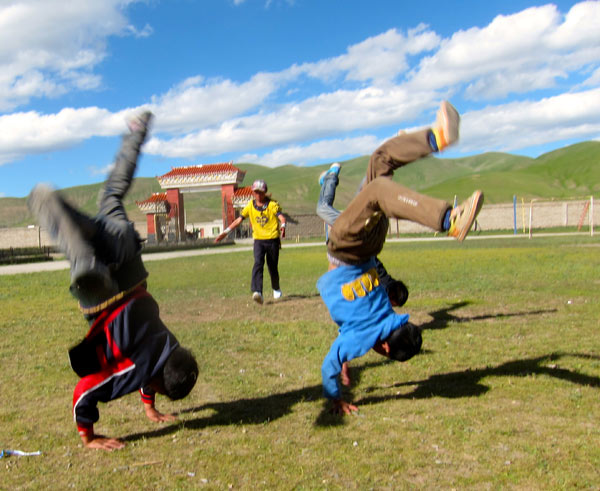 |
|
Break dancing has become all the rage among Qumalai's nomadic youth since TV arrived in the area a few years ago. Erik Nilsson / China Daily |
While nomads by definition live on the move, Puqu and his nomadic peers live for the moves - that is, for break dancing.
Like many b-boys (break-dancing males) on the isolated grasslands flanking Qinghai province's Yushu, when the 13-year-old and his peers aren't studying or herding yaks, they're somersaulting, spinning, twisting and otherwise perfecting their b-boy skills to music unheard (at least by others).
Secluded highlands sparsely inhabited by ethnically Tibetan nomads may seem an unlikely foothold for the acrobatic dance genre believed to be born in New York's inner city in the 1970s.
But it has spread across the grasslands like wildfire - in this case, prairie fire - to become local boys' preferred pastime.
"Tibetan dances require music," Puqu explains at the elementary school of his native Qumahe township.
"Break dancing is something we can do anywhere. It's freer."
While the nomadic b-boys say the dance style suits life on the grasslands, it was not only unknown, but also virtually unknowable, to them several years ago, since electricity was scarce.
Yege township elementary school student Rongzhongja says he was amazed when he first saw break dancing on TV about four years ago.
"I'd never seen anything like it," the 14-year-old says.
"It seemed unbelievable."
His classmate, 15-year-old Chenhin Xiro, explains: "We were inspired by TV and then started teaching ourselves."
About 5 percent of Yege's households had electricity in 2011. Far fewer had TVs. Now, every household has both, thanks to government investment.
Local children, who knew little out of the outside world, say they discovered break dancing was one of the new things they learned about from TV they could apply to nomadic life.
"There's not much to do here. So TV is the main source of entertainment, especially in winter," former Yege Primary School teacher Tseringben explains.
The other is dancing, especially in the summer.
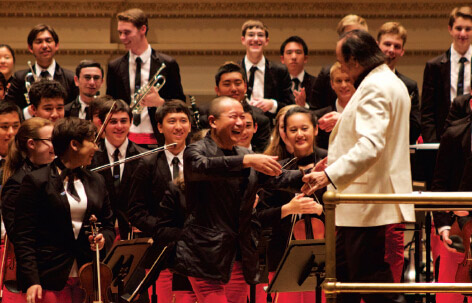
 Across America over the week (July 10- July 16)
Across America over the week (July 10- July 16)
 Unusual but true: inspirational art lights the way
Unusual but true: inspirational art lights the way
 Jury decides Colorado theater shooter guilty
Jury decides Colorado theater shooter guilty
 Top 10 global cities in greenfield FDI
Top 10 global cities in greenfield FDI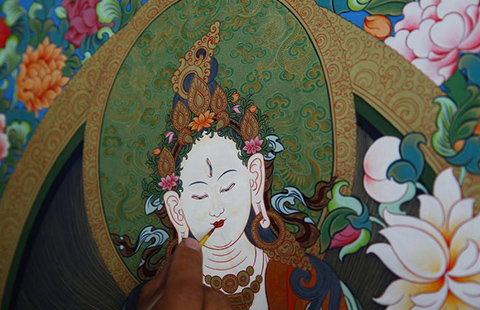
 Thangka art booms in Regong
Thangka art booms in Regong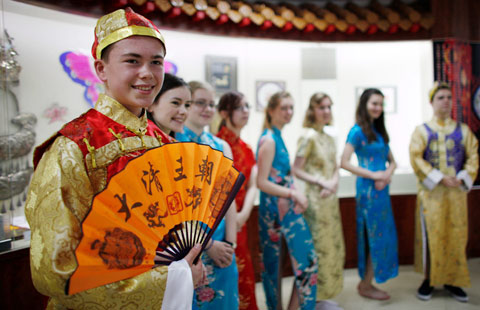
 UK students experience Chinese culture in Tianjin
UK students experience Chinese culture in Tianjin
 World's first figure 8 Ferris Wheel to be opened in Macao
World's first figure 8 Ferris Wheel to be opened in Macao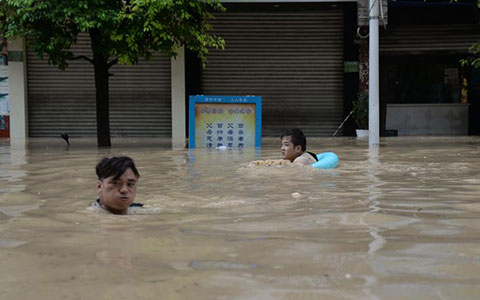
 Heavy downpour hits SW China
Heavy downpour hits SW China
Most Viewed
Editor's Picks

|

|

|

|

|

|
Today's Top News
China faults Japan's new security bills
Chinese national pleads guilty in Pennsylvania to test-taking scam
Web companies asked to support 'digital Silk Road': Zhanjiang forum
Risks growing for cybersecurity
Industries should be on digital Silk Road to expand market
Lengthy rehab expected for elder George Bush
UN Security Council to vote Monday on endorsing Iran deal
China's GDP grows by 7%
US Weekly

|

|






